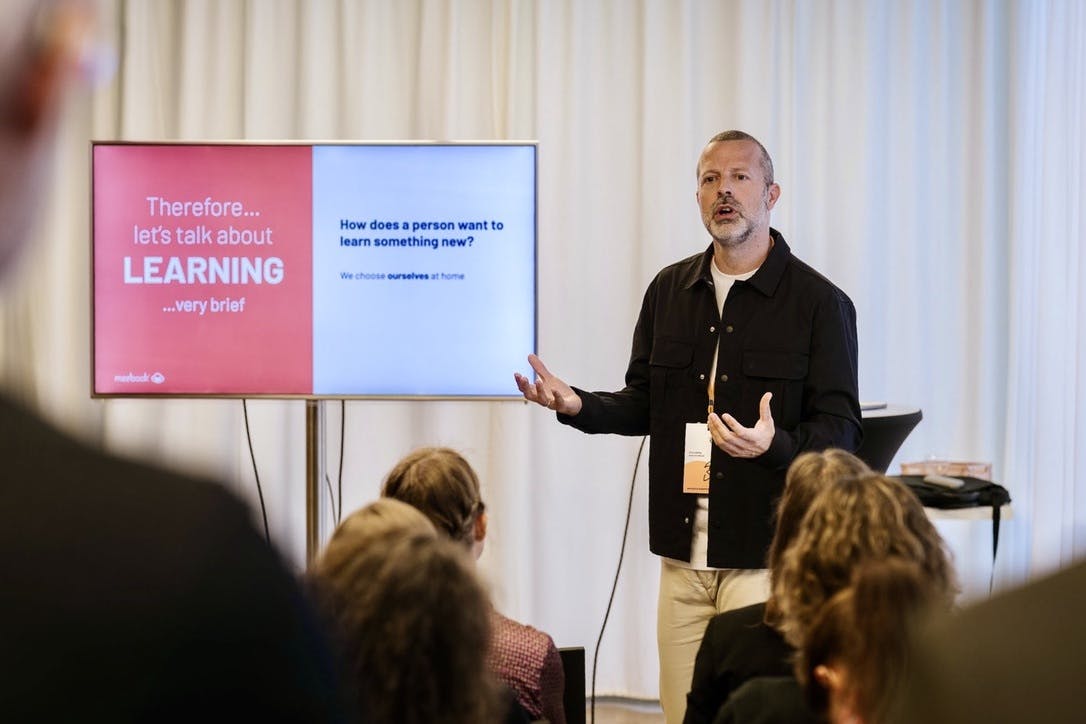Article
How AI is transforming Visma’s software development
25/8/2024
min read
AI

AI is more than just a buzzword – it’s transforming industries worldwide, and software development is no exception. At Visma, the adoption of AI-driven tools has become a strategic priority, not only to enhance internal processes but also to deliver the best products to our customers.
Given the developments within generative AI in recent years, we’ve been investigating how we can benefit from this technology as much as possible. We recently discussed our upcoming plans for AI-driven tools with our CTO, T. Alexander Lystad, who shared his valuable insights into how AI is reshaping software development at Visma.
Empowering our developers with AI assistance
Our commitment to AI innovation goes beyond improving daily development tasks – it’s about redefining the way we develop our software. As a software company, the work that our software developers do is absolutely crucial. We want to provide them with the best tools available to optimise how they work.
AI assistance is helpful for multiple reasons, including:
- Reducing boilerplate code: It reduces the amount of simple boilerplate code our developers need to write when starting a new product, feature, or Java class file.
- Debugging: It assists developers in troubleshooting bugs and seamlessly suggests solutions for code implementation within the code editor.
- Testing and documentation: It helps with writing tests and documentation, which are vital for maintaining quality and ensuring code longevity.
Adopting these tools is not just about keeping up with technological trends. “We’re investing in AI assistance to empower our developers, improve their workflows, and strengthen our offering to customers. It’s clear how it has helped our developers in their daily work”, Alex says. Since we started implementing more AI tools, 85% of our developers have reported increased efficiency in their work, allowing us to deliver better products within our existing development capacity.
In addition to improved product quality, the boost in AI tools has led to faster development cycles. The teams that embraced AI early on report higher job satisfaction and professional growth, highlighting the positive impact AI has had on both productivity and employee engagement.
“After our most recent AI implementations, Visma’s developers have been developing code as much as 50% faster.”

Enhancing code quality and security
While AI tools have significantly streamlined our development processes, maintaining a high standard of code quality and security remains our top priority. Alex emphasises that AI-generated code must be treated as a suggestion rather than an absolute solution: “AI-produced code isn’t always more secure or reliable than human-written code. It’s crucial for developers to treat AI-generated code as a suggestion, understanding that it may be incorrect, insecure, or less efficient than other options. Although we always have to stay vigilant, we see many instances where AI enhances code quality. Regardless, every piece of AI-generated code needs to be reviewed, understood, and approved.”
“When humans and AI collaborate, they can achieve better results together than either could alone.”
We’re already exploring more ambitious applications of AI, such as using generative AI for large-scale technical modernisations and continuous software development. Alex envisions a future where AI tools are universally adopted across Visma, with an ultimate goal of reaching 100% adoption soon.
As AI continues to evolve and advance, so does the role of software developers. “As long as large language models and commercial tools keep improving, the demand for developers whose sole skill is coding will decrease, while the need for product engineers will increase. Those are the professionals who truly understand product strategy, empathise with customers, and can effectively utilise AI”, Alex explains. This shift highlights the importance of adaptability and a broader skill set, especially in the rapidly ever-changing tech industry.

Voice of Visma
Welcome to the Voice of Visma podcast, where we sit down with the business builders, entrepreneurs, and innovators across Visma, sharing their perspectives on how they scale companies, reshape industries, and create real customer value across markets.

















































































































































































































































